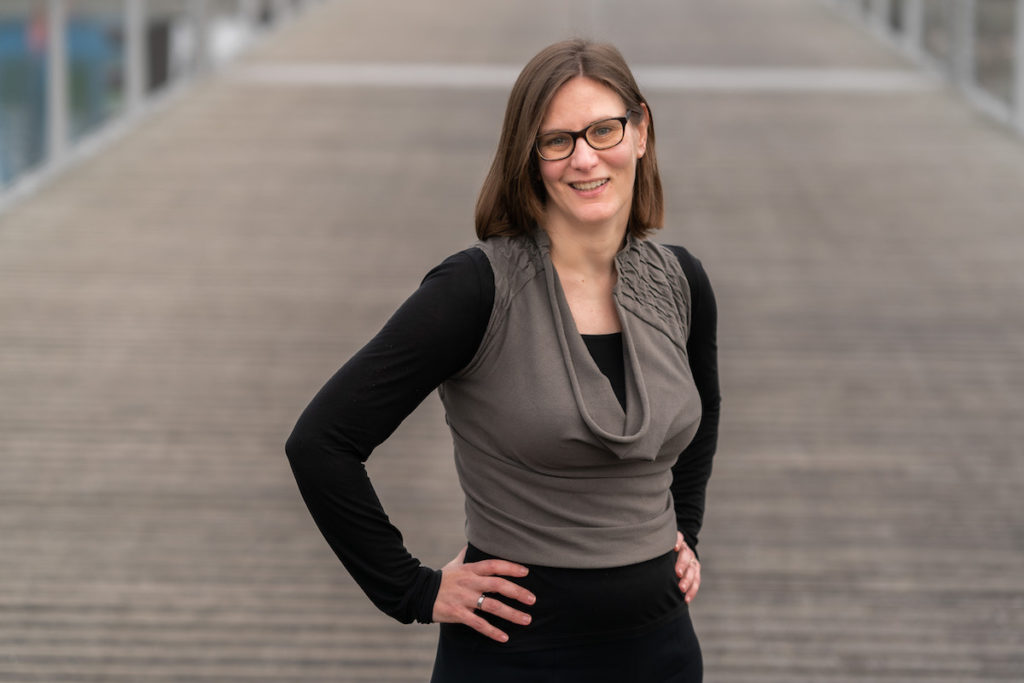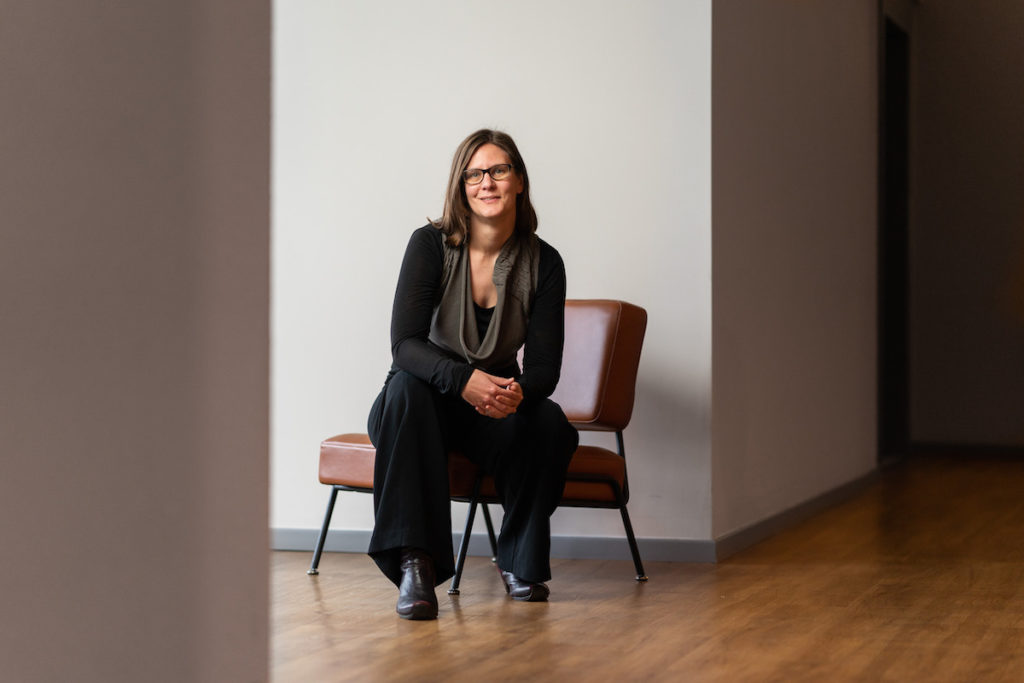The Reference’s Isabel Donvil: ‘The most important question is how to stay relevant’

Isabel Donvil recently accepted to lead digital agency the Reference as its sole MD. The innovative Emakina Group agency with offices in Ghent, Antwerp and New York is looking confidently to the future, journalist Myrte De Decker discovered when interviewing Isabel. Here are some extracts of the original article (in Dutch) in Belgium’s leading business magazine Trends.
After a start-up period of just over a year, Isabel Donvil now is the sole captain aboard The Reference. Under her leadership, the digital agency will continue its renewal operation, while Anja Cappelle moves to parent company Emakina Group. “My start as co-MD was a logical consequence of the change process we started together,” says Donvil. “To guarantee the day-to-day management of an agency with more than 100 people while focusing on innovation, you need to create some extra space.”
What does the future of The Reference look like?
Isabel Donvil: “The main question is how to stay relevant. The Reference should not be an island. We need to build even closer ties with our customers, other agencies and external partners.
The network economy is the future, and our innovative framework embraces this reality. This year, we recruited twenty new talents. This includes program managers, who work at the intersection of new technologies and creative work and ensure a smoother flow in our organization. Developers and marketers must also know how to talk to each other… an organization depends on seeing added value in each other.

How has The Reference experienced the past year?
Isabel Donvil: “2020 was a year filled with contradictions and changes. We assisted our customers as well as possible to limit the impact of the pandemic. Besides that, We also invested a lot of extra time to manage the issues the crisis threw at is. Never before have we spent so much time to monitor changing legislation, adjust forecasts, follow up on customers’ changing needs… Balancing these two challenges was not easy but necessary.
“In addition, we had to protect the mental well-being of our team. Our limited hierarchy and shared professional pride made it hard for most of us to admit going through a difficult moment. But it is vital we all feel fine and in good health: as a true service company our experts are at the core of the advice we give to our customers.”
Do your customers still think the future is bright?
Isabel Donvil: “That depends on the sector. Clients in the travel sector reacted faster than those working in utilities. The first had to react fast, the second felt little had changed. Another group clearly benefited from the crisis. For those who already prepared their digital transformation, the switch to online channels was less a burning issue for their survival. A remarkable number of marketing budgets shifted from traditional to digital channels. It was part of our job to persuade those who were not fully convinced yet. We are a digital innovation accelerator, so we took the time to check our clients’ concerns and emotions, to propose the best-suiting online solution making everyone involved feel comfortable.”
So, business operations had to innovate?
Isabel Donvil: “Some companies fully adjusted their business model. The pandemic confirmed the digital world is here to stay. One client is a leader in storage facilities and we digitized their entire process, physical contact during handling now is a thing from the past. But for some organizations, such a fundamental switch is too abrupt. We saw this particularly in large companies, pulling the handbrake, fearing the changes were too big and coming too fast. Smaller companies generally were quicker off the mark.

The Reference always looks at the customers of its own customers. Will the agency continue to do so?
Isabel Donvil: “Of course. If someone is thinking of buying a book from one of our customers, we’ll take into account all the possible competitors of that book. That person can decide to read, listen to music, take a walk or do a chore around the house. Closer to our sector: why would a customer buy from your specific web shop and not from another one? We see that what customers want is not always the same as what companies want. So, we always have to think beyond the status quo.
“The pandemic was a real catalyst for innovation, that will bring benefits for companies for years to come. For example, many had been collecting data for a long time, without actually doing anything significant with it. Now, most realize they can better understand underlying processes when they analyze this material. When you combine this approach with insights about your customers’ emotions, you create an unprecedented source of new valuable information. We help our customers to do that at their own pace and in harmony with their company culture.”
Our recent blog posts
See all blogs-
How is AI’s synthetic data enhancing User Experience Research? Technology

-
Web3.AI Rising : How new technology can add value to your business

-
How generative AI helped us create an e-commerce app – with personalised content – in just 2 weeks Technology

-
Can you build a foodie app in 3 days using Generative AI? (Spoiler alert: yes!)

